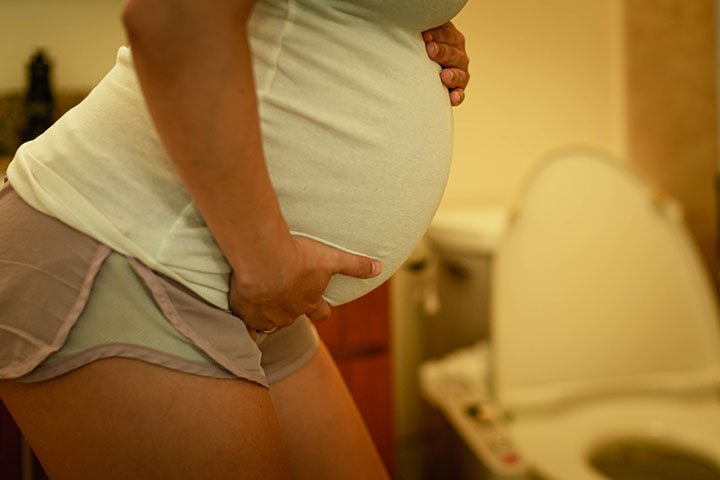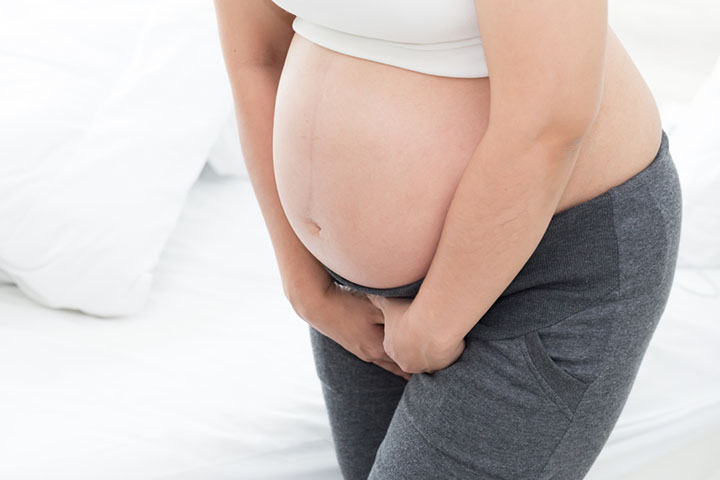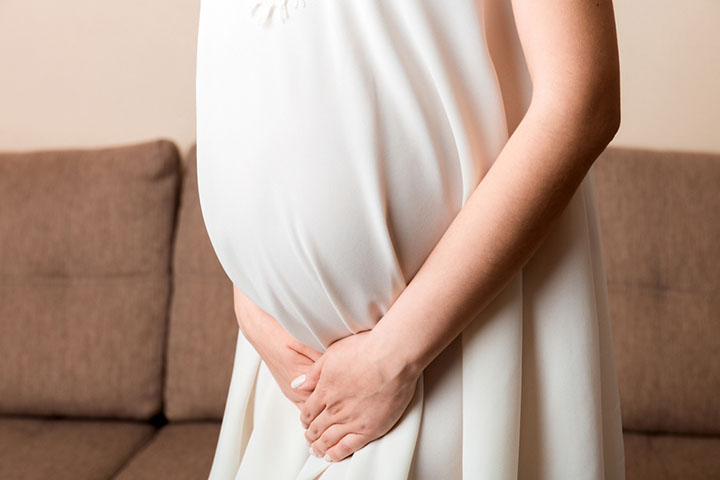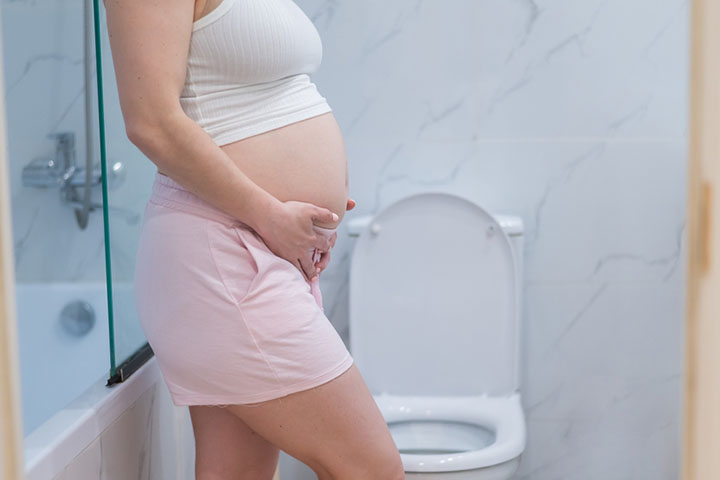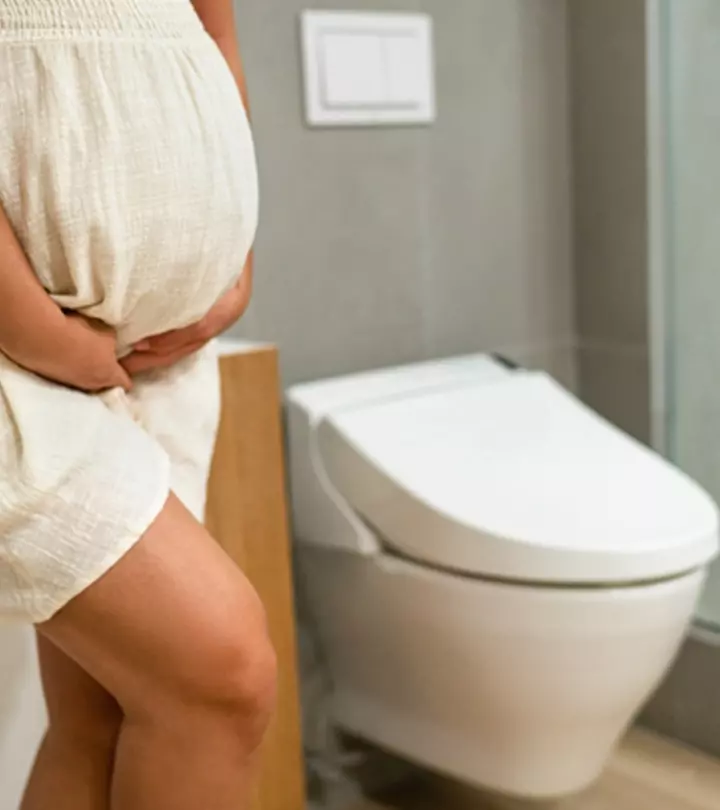
Image: Shutterstock
Pregnancy is a transformative journey marked by various physical and mental changes. One prevalent symptom that almost all expectant mothers encounter is frequent urination. While it can be inconvenient, it’s a typical aspect of the pregnancy experience. In this article, we’ll delve into the subject of frequent urination during pregnancy, its causes, timing, methods to alleviate it, potential signs of a more serious concern, and whether it persists postpartum. Read on!
What Is Frequent Urination During Pregnancy?
Frequent urination during pregnancy, often referred to as “peeing for two,” is the increased need to empty your bladder more frequently than usual. This symptom typically begins in the early stages of pregnancy and continues throughout the gestational period. It can sometimes be bothersome, especially during the night when it may disrupt your sleep.
What Causes Frequent Urination During Pregnancy?
Image: Shutterstock
Several factors contribute to frequent urination during pregnancy:
1. Hormonal Changes
Hormonal changes, including increased hCG and progesterone, boost blood flow to the pelvic area, causing more urine production.
2. Uterine Pressure
As your baby grows, your expanding uterus presses on your bladder, reducing its capacity and increasing the need for frequent urination.
3. Fluid Retention
During pregnancy, your body retains more fluids to support the growing baby (1). This excess fluid is processed by your kidneys and expelled as urine.
4. Increased Blood Volume
During pregnancy, increased blood volume supplies vital nutrients and oxygen to both you and your baby, resulting in extra fluid filtering through your kidneys into your bladder.
When Am I More Likely To Have Frequent Urination During Pregnancy?
Image: Shutterstock
Frequent urination often starts in the first trimester and tends to peak during the second trimester. Here’s a general timeline:
1. First Trimester
Hormonal changes and increased pelvic blood flow cause early frequent urination symptoms. Morning sickness can exacerbate the feeling of visiting the bathroom more often.
2. Second Trimester
As your baby grows, increased bladder pressure intensifies the need to urinate. Many women find relief as first-trimester symptoms gradually diminish.
3. Third Trimester
By the third trimester, you might get adapted to frequent urination, but as your baby descends for birth, bladder pressure can increase again.
How Can I Reduce Frequent Urination During My Pregnancy?
Image: Shutterstock
While you may not completely eliminate frequent urination during pregnancy, there are ways to manage and reduce its impact:
1. Staying Hydrated
It may seem counterintuitive, but maintaining good hydration can actually help prevent urinary tract infections (UTIs) and promote overall health. However, consider reducing your fluid intake in the evening to minimize nighttime bathroom visits.
2. Cutting Back On Caffeine And Citrus
Caffeine and citrus fruits can irritate the bladder, potentially intensifying the urge to urinate (2). Reducing your consumption of these substances, particularly in the evening, can be beneficial in managing frequent urination.
3. Empty Your Bladder Completely
Take your time when urinating to ensure you empty your bladder fully. This can reduce the need to return to the bathroom shortly after.
4. Kegel Exercises
Strengthening your pelvic floor with Kegel exercises can support your bladder and reduce urination urgency (3). Seek guidance from your healthcare provider for correct Kegel exercise techniques.
5. Elevate Your Feet
Elevating your feet when sitting can alleviate some of the pressure on your bladder, making it more comfortable and potentially reducing the frequency of urination.
6. Practice Good Posture
Maintain good posture, especially when sitting, to avoid putting extra pressure on your bladder.
7. Sleep On Your Side
Sleeping on your left side can help reduce the pressure on your bladder and improve overall circulation, potentially leading to fewer nighttime trips to the bathroom.
Could It Be A Sign Of Something More Serious?
Image: Shutterstock
Frequent urination during pregnancy is usually a normal symptom. However, in some cases, it can be a sign of a urinary tract infection (UTI) or other complications. You should contact your healthcare provider if you experience any of the following:
- Pain or burning sensation during urination.
- Blood in your urine.
- Cloudy or foul-smelling urine.
- Fever, chills, or abdominal pain.
- Frequent urination accompanied by excessive thirst.
- Sudden and severe swelling in your hands, face, or legs.
Your healthcare provider will assess your symptoms and may recommend a urine test to rule out any underlying issues.
Will Frequent Urination Continue After I’ve Had The Baby?
The good news is that frequent urination due to pregnancy usually subsides after you’ve given birth. As your uterus shrinks back to its pre-pregnancy size and the pressure on your bladder diminishes, you’ll likely find that your bladder function returns to normal within a few weeks.
Frequent urination during pregnancy is a common and normal symptom caused by hormonal changes, increased blood volume, and the pressure of a growing baby on your bladder. While it can be bothersome, especially at night, there are ways to manage and reduce its impact. Remember that staying hydrated, maintaining good posture, and practicing pelvic floor exercises can help. However, it’s essential to contact your healthcare provider if you experience any unusual symptoms or discomfort, as they can provide guidance and rule out any underlying issues. Rest assured that after giving birth, your bladder function is likely to return to normal.

